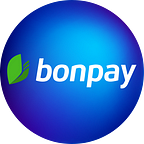Security of your cryptofunds is not a goal — it’s a continuous process. And you are the one responsible for it. Choosing a cryptocurrency wallet is a first step, but additional security is necessary.
Use separate emails for each wallet
Your security is only as strong as its weakest link. So if you have a lot of wallets connected to the same email, you might as well store all this money in the same wallet. Which is a bad idea.
That’s why you should connect each wallet to its own separate email. And you should use this email only for this wallet.
If you are particularly paranoid, we also suggest hosting your own email server. But this requires quite a lot of technical know-how or additional investments. For most of us, Protonmail will be more than enough.
Distribute your tokens
Some people put all their savings into a single wallet, store the access key on a USB-stick and never trust anyone with it. Sitting in the dark and whispering “My Precious” is optional.
It does seem reasonable — they have to secure and keep track of only one set of keys; they always have access to their wallets. But you really shouldn’t do it, because it does not account for the worst case scenario.
Imagine, that your wallet does get hacked. We bet you’d rather lose only a part of the money instead of your whole life’s work. So instead of being another Gollum, unleash your inner Tom Riddle and store your fortune in as many pieces as you reasonably can.
Each token or coin should get its own wallet. No exceptions. Even better, if each wallet is stored on its own payment system (BTC at Bonpay, ETH on a hardware wallet, etc.). This way your money will be at least partially safe from in-system vulnerabilities like MyEtherWallet’s recent fiasco.
If you are investing in a small number of coins/tokens, you can start spreading your wealth — i.e., distribute 3 BTC on one wallet and 3 on another one. This way your wallets will seem like a less preferable target for hackers too. Most criminal operations are about maximizing profit and wouldn’t bother with a 3 BTC wallet if there’s an option to go after one with 7 BTC, 35 ETH, and 2 000 BON.
Enable Two-Factor Authentication
Two-Factor Authentication (2FA) is a continually changing secondary password that is required to access your wallet. This password is generated on your phone (or any other device you want to use). The most known 2FA system is Google Authenticator (Android, iOS), although there are other solutions i.e. LastPass Authenticator (Android, iOS).
This way, even if the hackers find a way to get your private key and email, they will still need your device to bypass 2FA. And stealing a phone is a lot harder than social-engineering your way into a mailbox.
Keep your passwords and private keys safe
Your private keys are necessary to access your wallets. The passwords for the emails used to register said wallets are crucial too. You do not want to lose them and spend months recalling the code like Mark Frauenfelder.
So create backup copies of all passwords that you use and then store them somewhere you can access if you suffer from spontaneous amnesia. Of course, you should also protect this data from potential hackers. It is up to you to find the compromise, but here are some ideas where to store your backups:
- On a private cloud that has only your IP whitelisted;
- In a banking safe. You can even go full Winklevoss and have several safes in different banks storing different passwords;
- On an AES-encrypted USB drive in a flower pot on your desk (not really).
Create a trust fund for yourself
Sometimes you secure your cryptofortune so much that using it becomes a burden. To prevent being bogged down with processing operations, we recommend you create a trust fund wallet for the direct spending with 10% of your total savings, and somewhat relax its security. For example, store the keys necessary to access it on your person (i.e., an encrypted note in your phone) or somewhere within the arm’s reach. This way you will always have quick access to some money, but won’t have to worry about your other investments.
We hope that you take our words to heart and improve wallet security on your side, while we do the same on ours. If you have any questions about security measures of Bonpay Wallet or want to recommend a system for us to implement — start a discussion on the Bonpay subreddit. We will answer the most popular and exciting questions in our first video AMA.
P.S. We decided not to talk about the generic things, like never giving anyone your private keys or making sure that your passwords are secure. If you need a refreshment course on this, our friends at McAffee foundation have a pretty good guide on password security.
